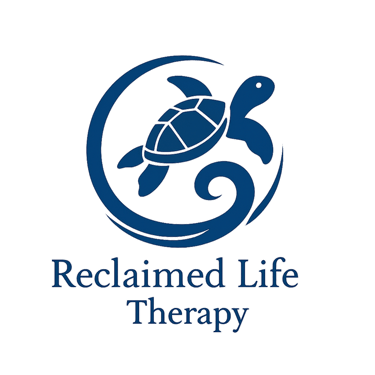Mental Health Specialties
We provide holistic therapy to address a range of mental health challenges, including anxiety, depression, trauma, and addiction, as well as other serious mental health issues. We understand that your emotional and mental well-being are fundamental to your overall health, and our aim is to support you with your unique individual needs and building a groundwork for a fulfilling and healthy life. We believe that everyone deserves to live a happy, balanced life, and our specialized therapy services are designed to help you Reclaim your life.












Anxiety is what we feel when we are worried, tense or afraid – particularly about things that are about to happen, or which we think could happen in the future. Anxiety is a natural human response when we feel that we are under threat. It can be experienced through our thoughts, feelings and physical sensations. Most people feel anxious at times. It's particularly common to experience some anxiety while coping with stressful events or changes, especially if they could have a big impact on your life. Anxiety can become a mental health problem if it impacts your ability to live your life as fully as you want to. For example, it may be a problem if:
your feelings of anxiety are very strong or last for a long time
your fears or worries are out of proportion to the situation
you avoid situations that might cause you to feel anxious
your worries feel very distressing or are hard to control
you regularly experience symptoms of anxiety, which could include panic attacks
you find it hard to go about your everyday life or do things you enjoy.
Anxiety


Trauma is when we experience very stressful, frightening or distressing events that are difficult to cope with or out of our control. It could be one incident, or an ongoing event that happens over a long period of time. Most of us will experience an event in our lives that could be considered traumatic. But we won't all be affected the same way. Trauma can happen at any age. And it can affect us at any time, including a long time after the event has happened. If you've been affected by trauma, it's important to remember that you survived however you could. You're having common, normal reactions. It's ok to ask for help at any time. Even if you're not sure if you've experienced trauma or want to describe your experience that way.
Post-traumatic stress disorder (PTSD) is a mental health problem you may develop after experiencing traumatic events. When you go through something you find traumatic it's understandable to experience some symptoms of PTSD. afterwards, such as feeling numb or having trouble sleeping. This is sometimes described as an 'acute stress reaction. Many people find that these symptoms disappear within a few weeks, but if your symptoms last for longer than a month, you might be given a diagnosis of PTSD.
Trauma & PTSD


Depression is a mental health problem that involves having a low mood or losing interest and enjoyment in things. It can also cause a range of other changes to how you feel or behave. The symptoms you experience may vary. How intense they are, how long they last, and how much they affect your daily life can also vary. If you experience milder depression, you might have low mood but still be able to carry on with your daily life. But things may feel harder and less worthwhile. If you have more severe depression, you might find day-to-day life much more difficult. You may also experience suicidal feelings. If you're diagnosed with depression, you might also be told that i is ‘less severe’ or ‘more severe’. This describes how your symptoms are affecting you, and what treatment you're likely to be offered. You may find that the severity of your depression changes over time.
Depression


Our specialty is providing mental health therapy to people 14 years old and above along with Geriatrics. Therapy can help you manage and cope with:
Difficult life events, such as bereavement (losing someone close to you), or losing your job.
Relationship problems.
Upsetting or traumatic experiences, whether it's something recent or something that happened a long time ago.
Difficult emotions, such as grief, guilt, sadness, confusion, anger and low self-esteem.
Depression and anxiety.
Other mental health problems. Talking therapies can help with a range of diagnoses, and specific talking treatments have been developed for some mental health problems.
Long-term physical health problems including diet and weight.
Some people think that therapy is an extreme option, and that unless things get really bad you should try to manage on your own. But this isn't true. It's ok to try therapy at any point in your life, whatever your background. In fact getting support from a therapist when you're not at crisis point can be really helpful – it might feel easier to reflect on what's going on, and could help you keep things from getting worse.
Adults & Geriatrics


A Mood Disorder such as Bipolar disorder is a mental health problem that mainly affects your mood. If you have bipolar disorder, you're likely to have times where you experience:
Manic or hypomanic episodes, which means feeling high
Depressive episodes, which means feeling low
Potentially some psychotic symptoms during manic or depressive episodes.
You might hear these different experiences called mood episodes or states. You can read more about them in our page on bipolar moods and symptoms. Depending on the way you experience these moods, and how severely they affect you, your doctor may diagnose you with a particular type of bipolar disorder. Many of us have heard of bipolar disorder, but this doesn't mean we all fully understand the diagnosis. You might find that some people have: Misconceptions about you or A negative or inaccurate image of bipolar disorder. This can feel very upsetting. Especially if the person who thinks this way is a friend, colleague, family member or healthcare professional. Remember you are not alone and you don't have to put up with people treating you badly.
Mood Disorders


All drugs have some kind of effect on your mental health. They can affect the way you see and experience things, your mood and your behavior. The effects of recreational drugs might feel pleasant or unpleasant. They may last for a short time or a longer period. Some effects may continue after the drug itself has worn off. How you react to recreational drugs is likely to depend on what you take, how you take it, and how you feel at the time. In certain cases, using recreational drugs can lead to long-term mental health problems. For example, taking they might lead to depression or schizophrenia. Or they may cause similar feelings to those you already experience as part of a mental health problem. You may also depend on recreational drugs and alcohol to help with feelings that you struggle to deal with in other ways. If you use drugs and alcohol in this way, you may be experiencing addiction. It can feel hard to ask for help for drug and alcohol problems. This may feel especially difficult if you also struggle with your mental health. But we are here to help you get treatment and support for both.
Addiction


Obsessive Compulsive Disorder
Everyone can experience obsessive thoughts or compulsive behaviors at times. But if you have OCD, your doubts and fears about your thoughts, and the things you do to feel better, can make you very distressed. And they can have a big impact on your life.
Obsessions are unwelcome thoughts, feelings, images, urges, worries or doubts that keep coming into your mind. They may feel stuck in your mind, no matter what you do. You may worry what they mean or why they won't go away, and feel very distressed by them.
Compulsions are repetitive things that you do to reduce the distress or uncertainty caused by obsessions. Compulsions can be things you do physically, like repeatedly checking a door is locked. Or they can be things you do in your head, like repeating a specific word to yourself. Or they may involve others, such as asking people for reassurance.


We are honored that we have the opportunity to specialize in helping our Veterans receive Evidence Based Mental Health Therapy. Regardless of Veteran status we can help you with issues such as: adjusting to Civilian life, relationships, communication, anger management, addiction, regret, anxiety, depression, grief, combat stress, suicidal thoughts, guilt, panic attacks and PTSD symptoms (nightmares, flashbacks, hypervigilance, changes in behavior or personality, etc.).
We are a VA Authorized Community Care Provider approved with Optum Community Care Network (CCN). Please reach out to your local VA provider to request a referral be faxed to us and we will reach out to you once received. Rest Assured, We respect your confidentiality, sensitive information and abide by HIPPA Regulations so there is no reason not to reach out.
Veterans


Eating disorders are a diagnosed type of eating problem. Bulimia: can include cycles of what's called bingeing and purging. Anorexia diagnosis (known as anorexia nervosa): not eating enough food; This means not getting the energy you need to stay healthy. Some people think anorexia is about slimming and dieting, but it's much more complex. At its core, it's often connected to low self-esteem, negative self-image and feelings of intense distress. Binge eating disorder: might feel unable to stop eating, even if you want to; you might rely on food to make you feel better and might also use food to hide difficult feelings. It is sometimes described as 'compulsive eating'. ARFID: strongly feel the need to avoid certain foods (or all foods); This might be because of smell, taste or texture. The idea of eating may fill you with anxiety. ARFID does not tend to be linked to body image issues. It's more anxiety about the process of eating itself. Pica: often eat things that aren't food and tends to have no nutritional value. Rumination disorder: regularly regurgitate your food and no physical health problem to explain it.
Eating Disorders


Losing someone important to us can be emotionally devastating – whether it's a partner, family member or friend. Grief can bring up lots of different, complicated emotions, and can sometimes affect our physical health. Bereavement affects everyone in different ways, and it's possible to experience any range of emotions. You may feel lots of different emotions at the same time, or your feelings may change quickly. Your feelings may also be confusing at times. There's no right or wrong way to feel. Feelings of grief can also happen because of other types of loss or changes in circumstances. For example:
The end of a relationship
The loss of a job
Moving away to a new location
A decline in the physical or mental health of someone you care about
Distressing world events
Grief
We offer services through Telehealth (video & audio) and phone for people located in Alabama and Tennessee.
We also offer services in-person in North Alabama and Southern Middle Tennessee on a case by case basis.
Locations Served:
Phone: 256-542-1057
Fax: 256-910-0820
Referral Email:
Referrals@ReclaimedLifeTherapy.com
General Questions Email:
Reclaimedlifetherapy@gmail.com
Mailing Address:
1260 US HWY 72 E
STE B #128 Athens, AL 35611
